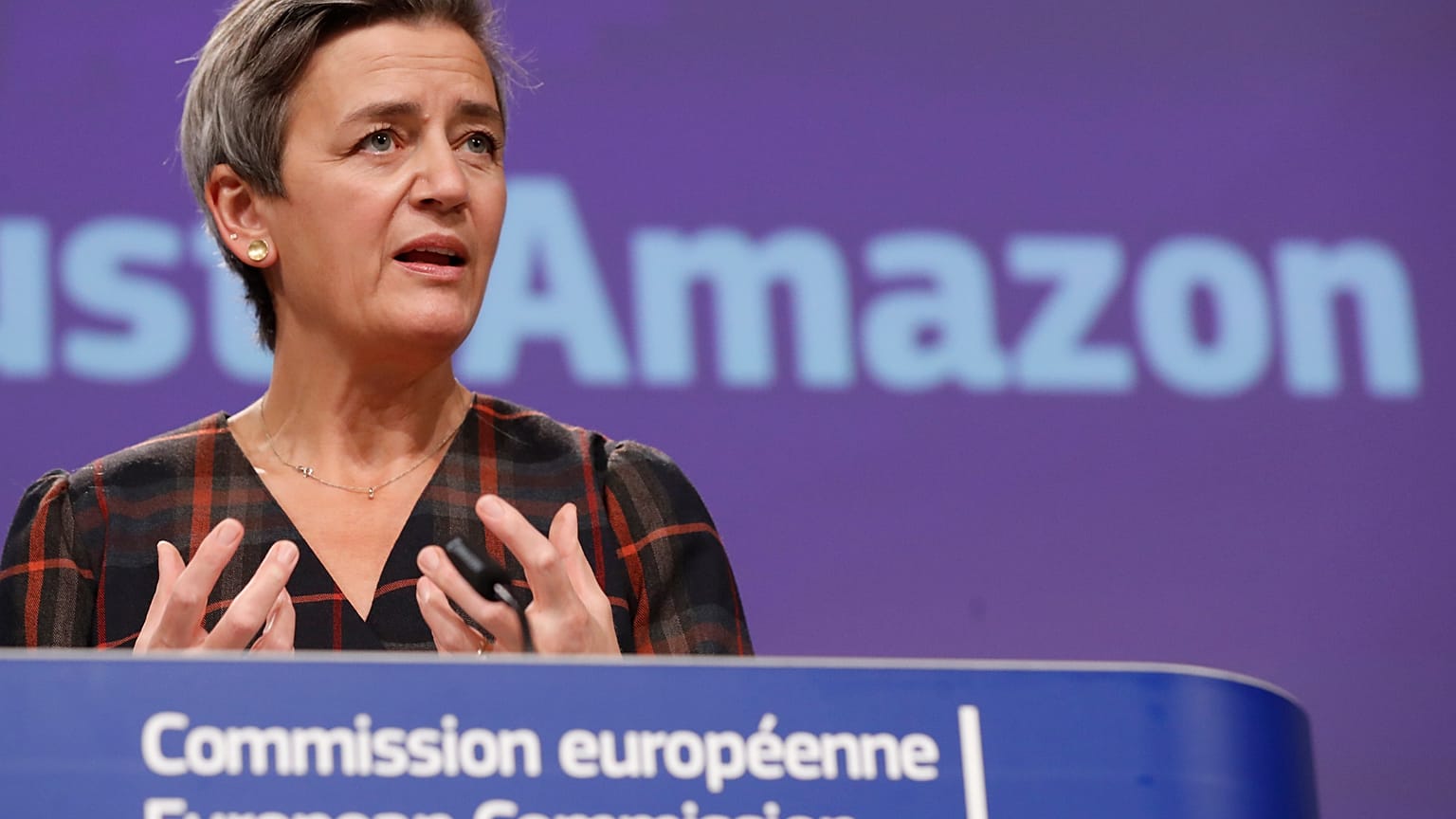"We disagree with the preliminary assertions of the European Commission and will continue to make every effort to ensure it has an accurate understanding of the facts.," said Amazon.
Brussels has accused Amazon of breaching competition rules, alleging it abused its dominant position to gain an unfair advantage over smaller retailers on its platform.
Amazon rejected the claims and said no-one had done more to help small businesses over the last two decades.
Margrethe Vestager, the EU Commissioner for Competition, said the case pertained to "big data".
"We do not take issue with the success of Amazon or its size. Our concern is very specific business conduct, which appears to distort genuine competition," she said.
She argued that Amazon's dual role — as a platform and a retailer on that platform — means it not only competes with other companies but that is it privy to sensitive data about its competitors' performances from what they sell, at what price they sell, and what customers think of the products which then allows it to tailor its own offering.
'No-one supports small businesses better than Amazon'
"Our investigation shows that Amazon is able to aggregate and combine individual seller data in real-time, and to draw precise, targeted conclusions from these data," Vestager said.
"Many retailers invest heavily to identify products if interest and bring them to consumers, taking risks when they invest in new products or when choosing a specific price level. Amazon can avoid some of those risks by using third party seller data for such business decisions.
"In fact, although Amazon only lists a minor share of all products on the platform, it captures the lion's share of the transactions in most product categories. In many of the popular product categories, Amazon lists less than 10% of the products available on the platform, but makes 50% or more of all revenues in the category," she added.
Amazon now has several weeks to respond to the Commission's preliminary conclusions. It faces a possible fine of up to 10% of its annual worldwide revenue.
In a statement emailed to Euronews, the company said: "We disagree with the preliminary assertions of the European Commission and will continue to make every effort to ensure it has an accurate understanding of the facts.
"Amazon represents less than 1% of the global retail market, and there are larger retailers in every country in which we operate. No company cares more about small businesses or has done more to support them over the past two decades than Amazon.
"There are more than 150,000 European businesses selling through our stores that generate tens of billions of Euros in revenues annually and have created hundreds of thousands of jobs."
For trade unions, however, the announcement has been a long time coming, as Oliver Roethig, UNI Global Union’s European Regional Secretary explained to Euronews.
“We definitely welcome it. It is really high time that they actually do it. When I look at some of the clear evidence we have already about Amazon's monopolistic behaviour, we really need [European] Commission intervention on this.”
Probe into Amazon's e-commerce practices
Vestager also announced a second investigation into Amazon's e-commerce business practices.
She accused the tech giant of setting rules that favour its own retail offers and the offers of sellers that use Amazon's logistics and delivery services.
The investigation will focus on the so-called "Buy Box" — featuring on the product detail page and which lets shoppers add items straight to their cart — and on Amazon's loyalty programme, Prime.
"Our concern is that Amazon may artificially "push" retailers to use its related services. This may potentially lock deeper into Amazon's own ecosystem an increasing number of sellers," Vestager said.















